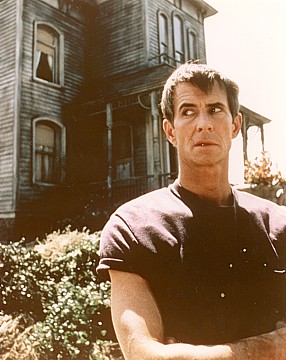"We also are tightening up the paper's news hole, This process is also known as arlen sphincter tightening. Where, exactly, is the news hole located?"
Most likey on newsprint's corpse rotting in WaPo's basement like Norm Bate's mom in Psycho.

The elite mediot maggot owners of ABCNNBCBS, the Compost and owners/publishers of the other major dinosaur fishwraps are the modern day, Norman Bates. They are trying to keep the corpses alive by refusing to admit that they are dead and to bury them.

Buy my Dinosaur Fishwrap stock. The old gray lady is just fine!

Ben Bradlee Supports 'Washington Post' Changes -- Says Challenges for Downie Greater Than In His Era
Ben Bradlee
By Joe Strupp
Published: November 15, 2006 1:10 PM ET
NEW YORK Ben Bradlee, the former executive editor of The Washington Post, supported the recent changes in news coverage that current executive editor Leonard Downie Jr. proposed in a Tuesday memo. But he disagreed with Downie's comparison (in that memo) to changes he made in the 60s and 70s -- contending that Downie has a harder job ahead than he did.
"He has a whole string of new problems I didn't have," said Bradlee, who headed the newsroom from 1965 to 1991 and still maintains an office there. "How do you cope with the Internet? How do you cope with kids not reading enough? There are problems of comparable scope, but his are probably harder than mine."
Staffers contacted by E&P reacted to Downie's plan and the likely changes with optimism, but some concern about the unknown elements. "It is the right way to go and there was probably too big a staff," said reporter Walter Pincus, whose time at the paper dates back to 1966. "We've drifted away from covering some things that are important to readers, too many people are covering the same areas when a big event occurs."
Susan Schmidt, an investigative reporter and 23-year Post staffer, also showed hope. "We know we are going to have to downsize and we are in a period of transition," she said. "Most people are noticing the reality of the industry."
Bradlee and others were responding to the lengthy memo in which Downie announced changes in news coverage and likely staffing that would include cuts though attrition, reassignments away from general assignment and toward more beat coverage, increased Web site use, shorter stories, and smaller newshole.
The memo stated that it was "the most important change that I will lead as executive editor. It reminds me of my early days in the newsroom, when Ben Bradlee began boldly transforming the paper during the 1960s and 1970s."
Bradlee has been credited during that time with making the paper better by improving coverage and writing, as well as making several sections better, such as the well-known Style section. Today, Bradlee said that Downie's challenge may be more difficult because the paper is already great, but dealing with financial problems he did not have.
"Money pressures had just been alleviated when I took over, the Post was comfortably in the black," he said. "He is starting from a higher [quality] base, there are theoretically less improvements to be made."
Bradlee praised the push for more Internet efforts, and said reducing staff through attrition should not affect the paper's quality. "I think we've got too many people," he said. "You've got people who write three or four pieces a year. Some people can write three or four books a year." As for the Web, he added that "the Internet is a key part of the package. What would we be doing, beyond twiddling our thumbs doing it the same old way. I think the Post is doing the right thing. You've got to keep your readership one way or another."
Downie could not be reached for comment Wednesday, but Managing Editor Phil Bennett said the key changes would include more Web involvement and a likely change in approach for feature writing and local coverage.
"Examining the role of feature writing and general assignment reporting to make sure it is linked up with issues that are priorities," Bennett said, citing local subjects and education. "Long-form journalism is still a top asset, but we have to see whether or not some of that should be directed toward new subjects."
Bennett had no estimates on how much staffing would be reduced or reassigned, but said no foreign bureaus or national staffing cuts had been discussed yet: "Some areas, like political coverage, we are likely to see an increase in staffing."
He also stressed that the Web site, which is already considered a leader among newspaper sites, is expected to play even more of a role in every reporter's work. "I think you are going to see more local news and local subjects on the Web," he said. "Eventually, every journalist who works at the paper will be thinking in [Web reporting] terms and see that it is part of their job."
For Alan Cooperman, an eight-year reporter, faith in the editors and the paper makes the changes easier to take. "It is not frightening here because there is widespread trust and goodwill we've built up over many years," he said.
Joe Strupp (jstrupp@editorandpublisher.com) is a senior editor at E&P.
Links referenced within this article
jstrupp@editorandpublisher.com
http://www.editorandpublisher.com/eandp/news/mailto:jstrupp@editorandpublisher.com">http://www.editorandpublisher.com/eandp/news/mailto:jstrupp@editorandpublisher.com
Find this article at:
http://www.editorandpublisher.com/eandp/news/article_display.jsp?vnu_content_id=1003408083


